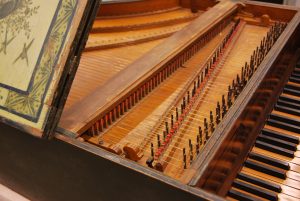I don’t have a direct first-hand reference (or I didn’t read that part), but from what I do know, and from serving in the Army, I can make a pretty good guess– the bugler got woken up by the guy before him, who was woken up by the guy before him. (Any living history reenactors have insights to share?)
In a military camp, someone was always awake. We still do it now in the field. There are guard shifts overnight and each soldier wakes up their relief. Guards falling asleep on duty is a very big deal. In a larger camp, there would be multiple guards on duty each shift so everyone falling asleep on duty is not likely. (In modern times, even with just a single platoon of 30 people you would likely use at least two people each shift).
Late 19th century buglers belonged to the companies. Each day, one of them would be designated as the “Duty Bugler” for the regiment. The duty bugler reported to the Adjutant and spent the day with the Officer of the Day. This might be at the HQ, or a guard station, or the Adjutant’s tent (depending on the country and era and if in the field or in garrison). A 24-hour guard was typical for most armies. A large number of soldiers were assigned guard for that day and there was a changing of the guard held daily. (This is what the bugle call “Guard Mount” is about.) The guard unit was split into shifts so individual soldiers were not actually ON guard posts a whole 24 hours. Maybe 8 hrs during the day and 2-4 hrs at night. But they were part of the guard unit for the day and stayed ready if there was an alarm. The bugler would assemble with them and start and end the day-long shift with them. The bugler likely slept at whatever HQ location the Adjutant or Officer of the Day was at.
During the day the bugler was on call to sound whatever signals were needed in addition to the scheduled calls. After Extinguish Lights (Taps) or Last Post, there were no calls to sound again until First Call in the morning. So the bugler could sleep during that time – at the HQ. The only bugling during that time would be to sound an alarm. Then one of the men on guard would wake the bugler before First Call (aka Trumpeter’s Call depending on the era and army). There was probably someone awake on a shift at the HQ around the clock who would go around and manage the times for changing shifts and waking people up.
We do not have buglers on duty, but the US Army still uses this basic idea. Every Battalion, Regiment, Brigade, and Division has an Officer of the Day (aka Staff Duty Officer) who pulls a 24 shift (and is allowed to sleep during it, but does need to make checks every few hours), plus Staff Duty NCOs who pull 12-hour (or sometimes 8-hour) shifts at the HQ manning a desk and phone. You cannot leave until your relief shows up, so if they are late you are calling them to wake them up. Those Staff Duty NCOs typically also have an enlisted private with them each shift to be a runner and just do whatever is needed. This is my take on the question anyway.

